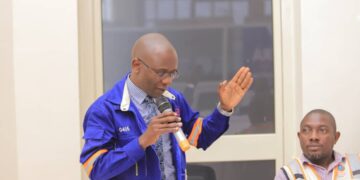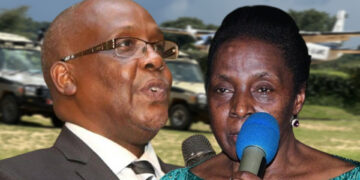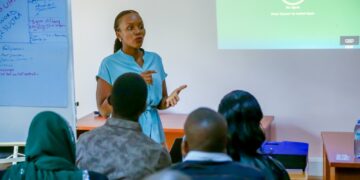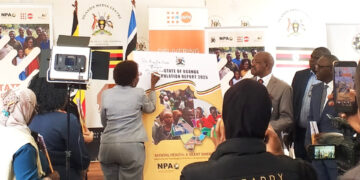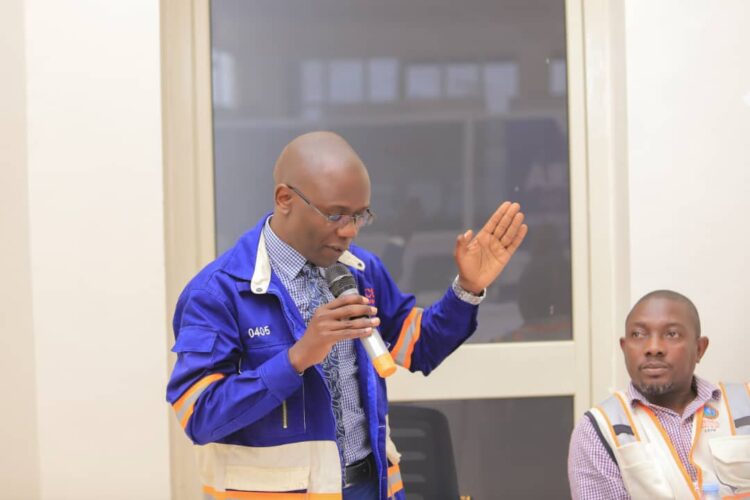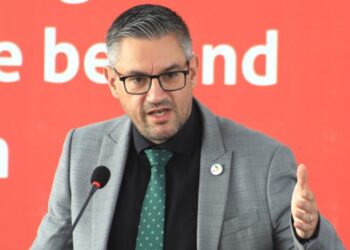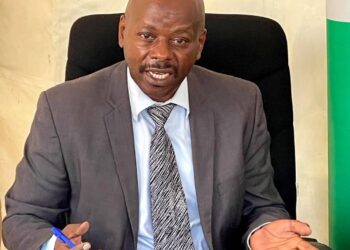By Gilbert Akampa Kakurugu,
MBARARA
The Electricity Regulatory Authority (ERA) and Uganda Electricity Distribution Company Limited (UEDCL) have responded to growing public frustration over frequent power outages and the perceived high cost of electricity in Uganda, especially during the rainy season.
Speaking to journalists in Mbarara at their ERA regional office in Mbarara Engineer Simon Peter from UEDCL explained that Uganda’s transmission network is predominantly overhead, making it vulnerable to weather-related disruptions. “Heavy rains often bring down aging poles or damage wires when trees fall,” he said. “This is why power shutdowns are more common during the rainy season.”
To address these challenges, UEDCL has begun replacing wooden poles with more durable concrete ones. The initiative has already commenced along the Mbarara–Isingiro road, starting from Nyamitanga.
Debunking Electricity Cost Myths,
Ibrahim Kasita, Regional Customer Officer at ERA office, urged journalists to help dispel widespread myths about Uganda’s electricity pricing. “It’s not true that Uganda exports cheap electricity to Rwanda and Tanzania while overcharging its own citizens,” he said.
Kasita broke down the current tariff structure to clarify the costs:Tariff Category Rate (UGX per unit)
Lifeline (first 15 units) 250/=, Cooking tariff at 412/=, Units between 16–80 units at 756.2/=, while Units above 150 Assumed for production also cost 756.2/=.
He also noted that consumers pay an additional 18% VAT on every electricity purchase, along with a fixed monthly service fee of UGX 3,660/=. He said the reduction in power tarrifs is aimed at promoting green energy and conserving the environment.
Addressing Meter Accuracy and Pole Ownership, Eng Simon Peter dismissed claims that digital meters run faster than expected. “These meters are thoroughly tested for accuracy before being issued to customers,” he assured.
He also clarified the ownership of electric poles, stating that all poles belong to the Government of Uganda. However, if a pole is located on private land, the homeowner must seek consent from the landowner before installing electricity—though the landowner cannot legally block the installation.
Peter emphasized the importance of using certified electricians for home wiring, noting that ERA is responsible for certifying installers on behalf of the government. He urged the public and media to report cases of power theft and vandalism, warning that such acts undermine the entire electricity system.
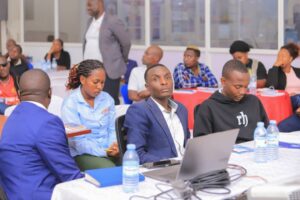
Despite the explanations, Elly Karanzi, a journalist based in Mbarara City, voiced skepticism. “Journalists face the same challenges as everyone else. Cooperation with ERA and UEDCL will hit a dead end if the issues remain unresolved,” he said.
Karanzi highlighted the high cost of installation, citing a personal example: “Installing electricity with just one pole costs UGX 2.7 million and even then, the process takes too long after application. Power shutdowns affect us all.”
